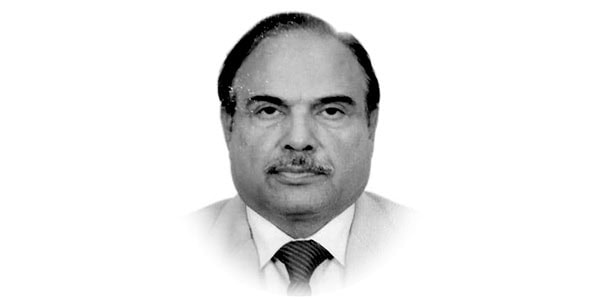In celebration of 75 years of Pakistan-US relations
PRIME Minister Shehbaz Sharif has given a green light to the construction of solar power projects of 2000 megawatts in the public sector to generate low cost and environment-friendly electricity and directed officials to ensure citizens get uninterrupted gas during the winter.
In a ceremony at the US embassy in Islamabad, the Prime Minister urged Washington to forget the past and revive bilateral relationship.
It is no secret that relations between Pakistan and the United States have been frostily since Joe Biden was sworn in as US President.
Indeed, this chilliness reaches back over more than a decade, many Pakistanis overestimated the closeness of ties under Donald Trump after that mercurial President replaced his earlier public denunciations of Pakistan with something approaching bonhomie.
The irritants du jour rocking the relationship at the moment are the allegations levelled by Imran Khan that Washington had a hand in his fall from power in April 2022.
The fact that Imran Khan has failed to offer even a shred of evidence to support his claim has not kept millions of his acolytes from believing him.
It is hard to avoid the conclusion that four US Administrations, those of George W.Bush, Barack Obama, Trump and Biden made one misjudgement after another throughout the entire duration of the war in Afghanistan.
Incredibly, Washington often had very little sense even of whom it was fighting, let alone why? Yet the American narrative of its Afghan debacle often focuses as much on Pakistan as in itself. True, there is a reason for this emphasis on Pakistan.
Pakistan’s relations with the United States haven’t always been subject to the way Washington interpreted its strategic interests in the geographical area of which Pakistan is a part.
Those who study foreign relations have a term for this, they call it geopolitics. Over the last 75 years, the United States had interest in Pakistan only when the country could deliver what Washington was seeking.
At times Pakistan became what some analysts in the United States called Pakistan the most allied nation for the United States.
There were three times when that happened. The first one was during the President Ayub Khan period (1958 to 1969), when the United States was building alliances around the world to stop the advancements of Communism into Asia.
What was then the Soviet Union posed the greatest threat to the West and the United States, leading the West, to build three alliances aimed at containing what it saw as the growing influence of Moscow.
The North America Treaty Organisation, NATO, was the first of these multi-country alliances.
Then came the Central Treaty Organisation, CENTO, which included countries from Europe and Asia. The Southeast Asia Treaty Organisation, SEATO, was the third of these three Alliances.
As its name suggests, it was focused on the countries that belonged to the Southeast Asian region. Pakistan joined the last two of these three alliances.
The second time Pakistan became a close ally of the United States was during the rule of General Zia-ul-Haq, who, like President Ayub Khan had became the President after imposing Martial Law and went on to govern Pakistan for eleven years from 1977 to 1988.
When Pakistan was no longer needed for these two endeavours, the United States left and returned only when it needed to fight what it called the war on terror.
This time another General Pervez Musharraf was the President and the United States was led by President George W Bush. Current world affairs are once again subject to several serious ideological conflicts.
What distinguishes them from the previous episodes is that two of these are the product of domestic struggles which at times have flowed into the international arena.
There is conflict among what some analysts have called liberalism when the extreme left and the extreme right have turned on each other, especially in the United States.
This has taken a dangerous turn in the United States. If the bilateral relationship between Pakistan and the United States is to be stabilised, a good place to start would be for both sides to move beyond their reflexive instinct to blame the other for their failures.
This is not to suggest that the policies and actions of either toward the other have been blameless only that clear eyed introspection is far more likely than finger pointing to produce policy most suitable for advancing the national interest and promoting the well being of the people of each country.
Pakistan’s relations with China are strong and deep, while the country has also enjoyed a long, albeit chequered relaxations with America. Therefore, it is in the national interest to maintain cordial relations with both sides.
The message from Islamabad should be that Pakistan seeks lasting friendship with all states, but will refuse to become a pawn on the geopolitical chessboard.
—The writer is former Secretary Election Commission of Pakistan and currently Chairman National Democratic Foundation.










